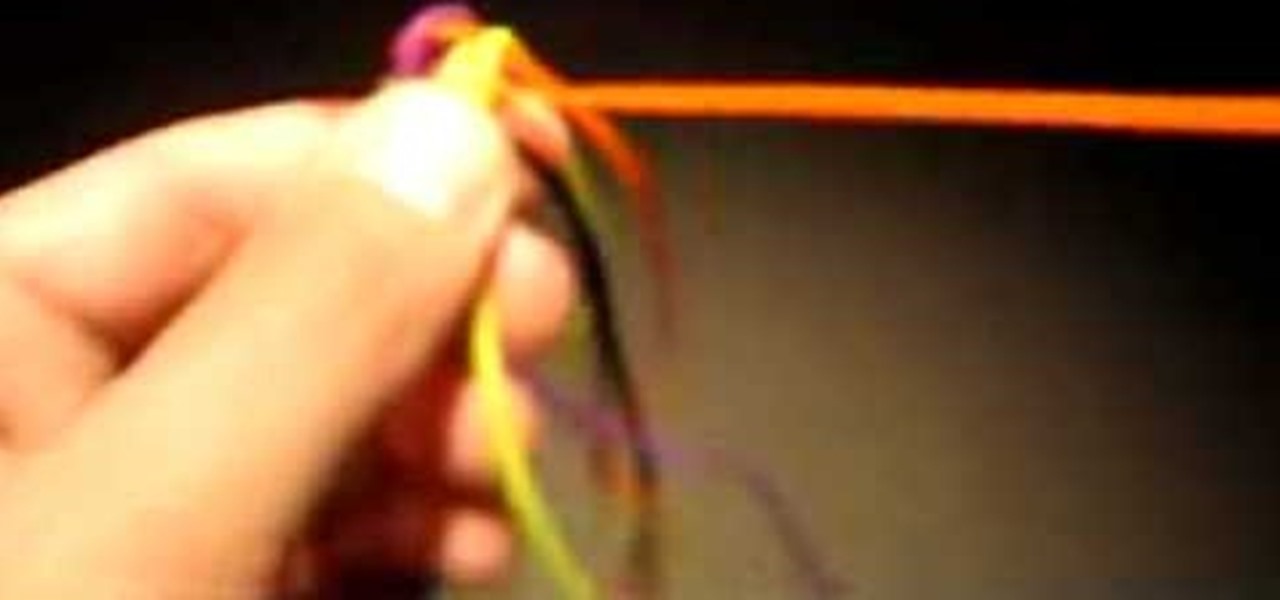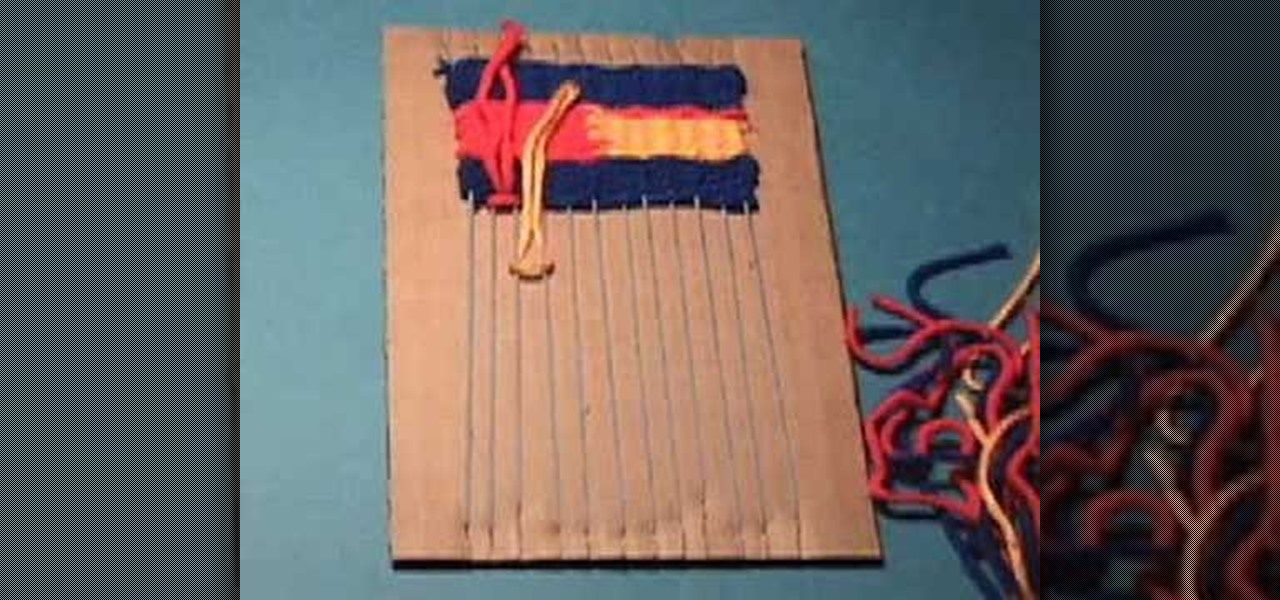Hot Weaving Posts

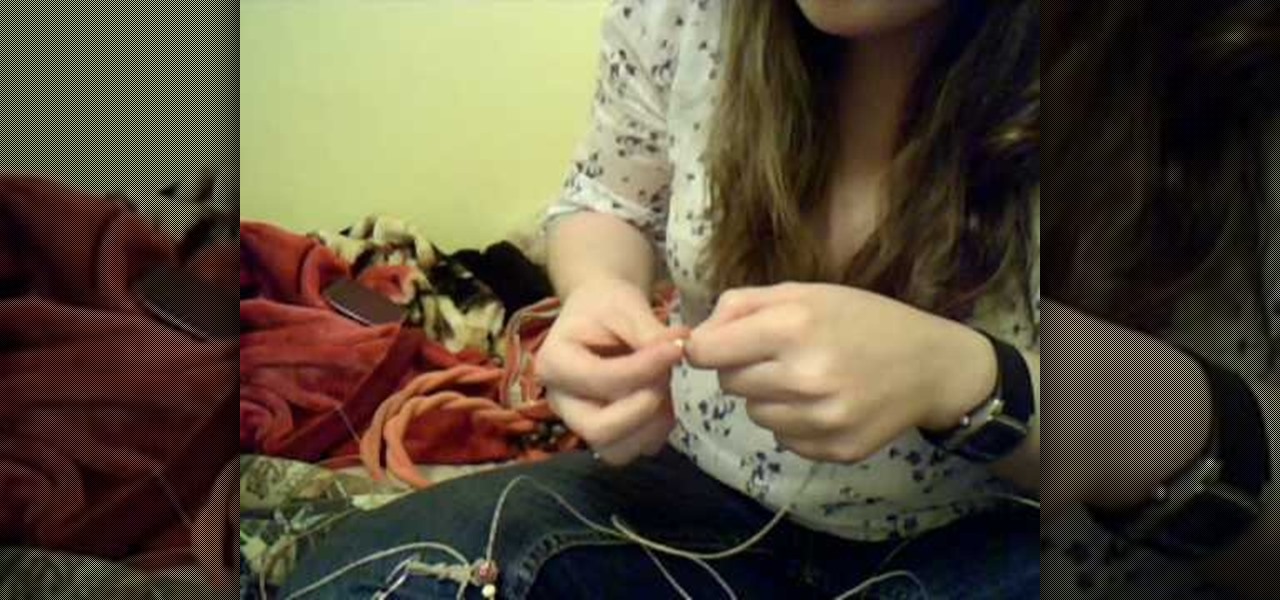
How To: Make a tribal hemp bracelet
To make a tribal hemp bracelet, first you need to prepare the hemp. Buy a natural colored hemp of 1mm thick(20lb twine). Cut one strand of hemp that is around six times the length. Cut a second strand of hemp that is twice the length of the first, or roughly 12 times the length of the bracelet. Fold both strands in the middle, one at a time, making a crease at each midpoint. Knot the creased midpoints together, leaving a loop at the end that is about 1/2 to 3/4 inch long. Your hemp is ready n...
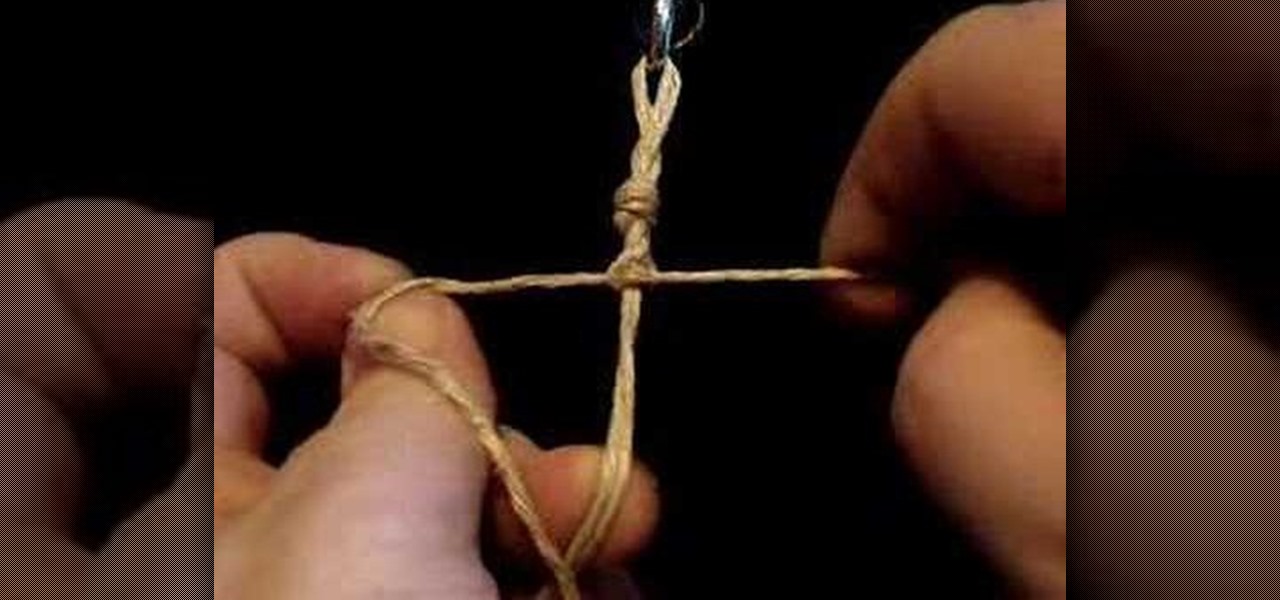
How To: Tie a right half knot spiral for hemp jewelry
This video is an instructional video on creating and using the right half knot spiral knot tying technique for creating hemp jewelry. The technique creates items like anklets, bracelets, chokers, and necklaces. Also, creator of the video demonstrates every step and procedure for creating the knot spiral. First, tie an overhand knot by crossing the right side of the cord over the left side of the cord. Second, bring the left cording under the right cording to create the second phase of the kno...

News: 1,000,000 Spiders Weave Rare Silk
A rare textile woven from the silk of more than one million spiders is currently on display at the American Museum of Natural History in New York City. The incredible textile measures 11 by four feet, and is the largest piece of spider-woven textile in the world.
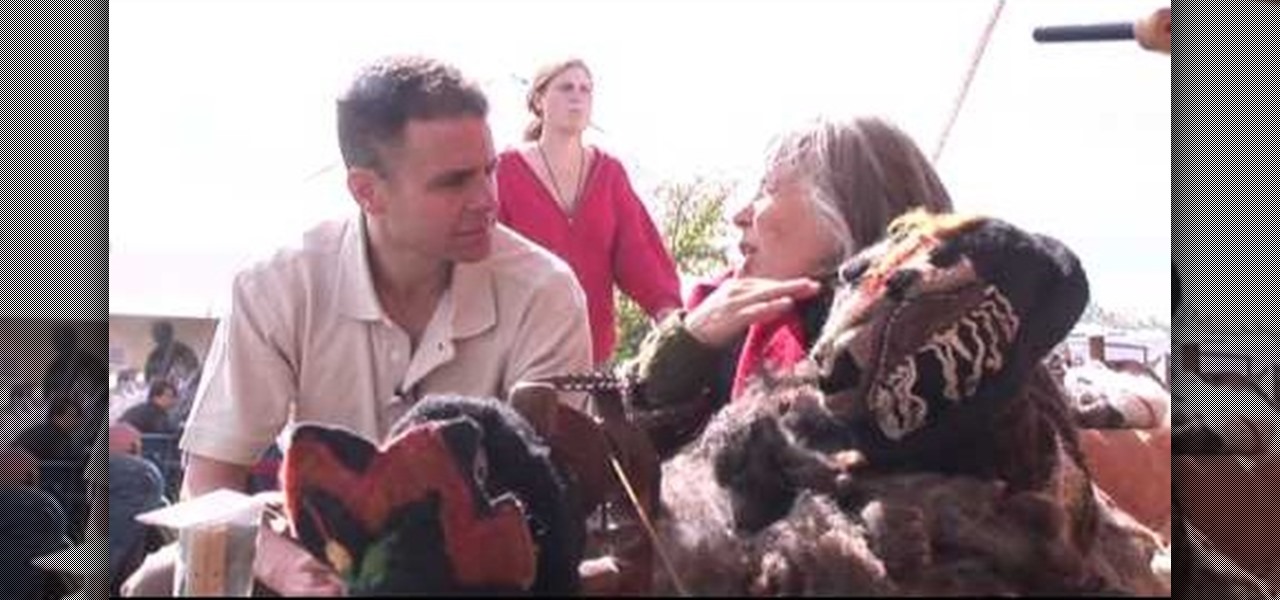
How To: Spin wool
In this episode of Growing Wisdom, Dave Epstein and fiber sculptor Susan Barrett Merrill discuss how to spin wool. Barrett Merrill demonstrates the spinning wheel and explains how wool is transformed into yarn. She also shows some of her own work and explains her artistic process.
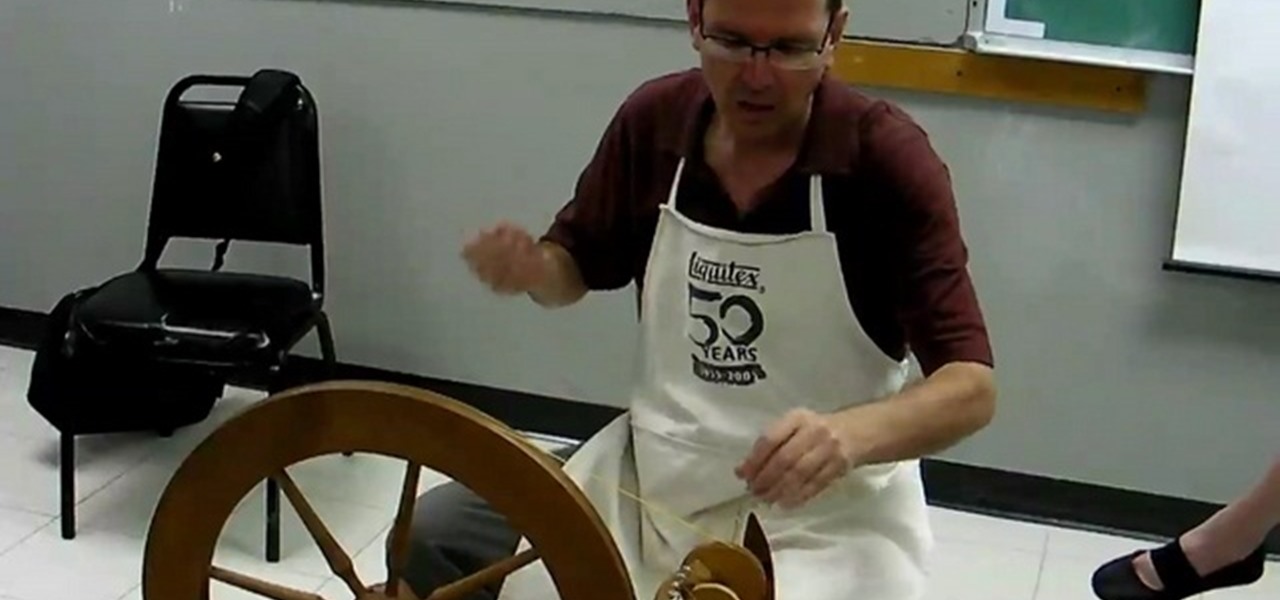
How To: Ply yarn
Check out this Make / Craft Magazine tutorial on plying yarn in weaving and textiles.
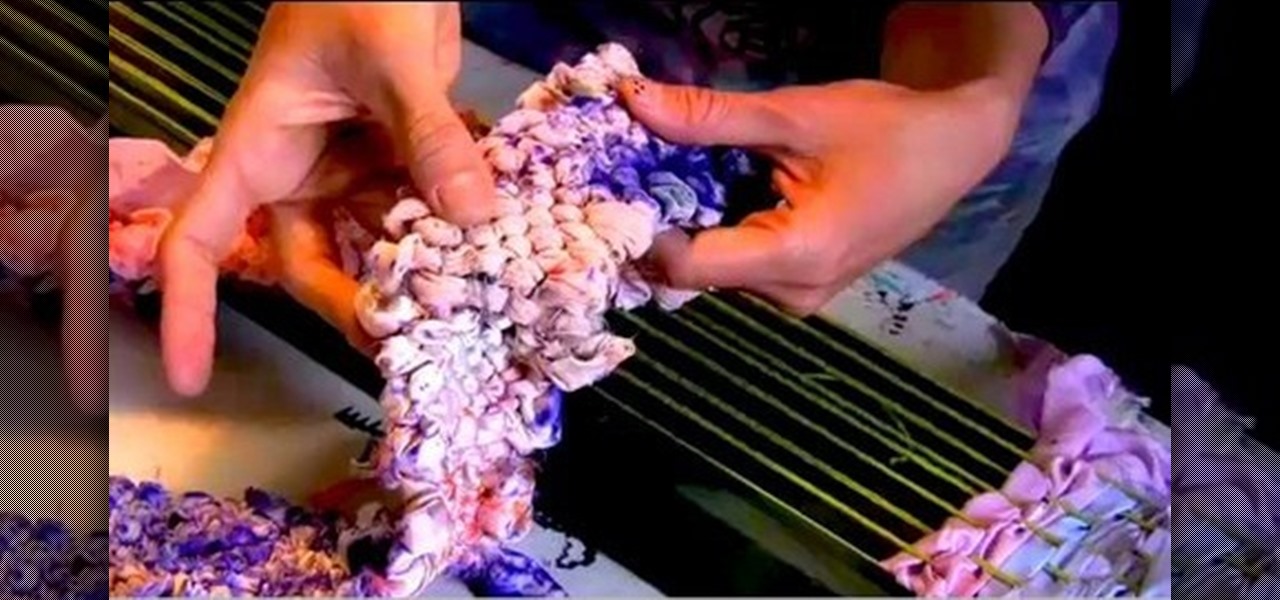
How To: Make a loom and a scarf with Threadbanger
Ever thought your neck was going to freeze off it was so cold outside ? Well worry no more...Threadbanger shows you how to not only make your very own loom but how to utilize all that scrap fabric you got lying around and make a scarf with it. Thanks to Barbara from Bobbi Clothes for hooking it up.
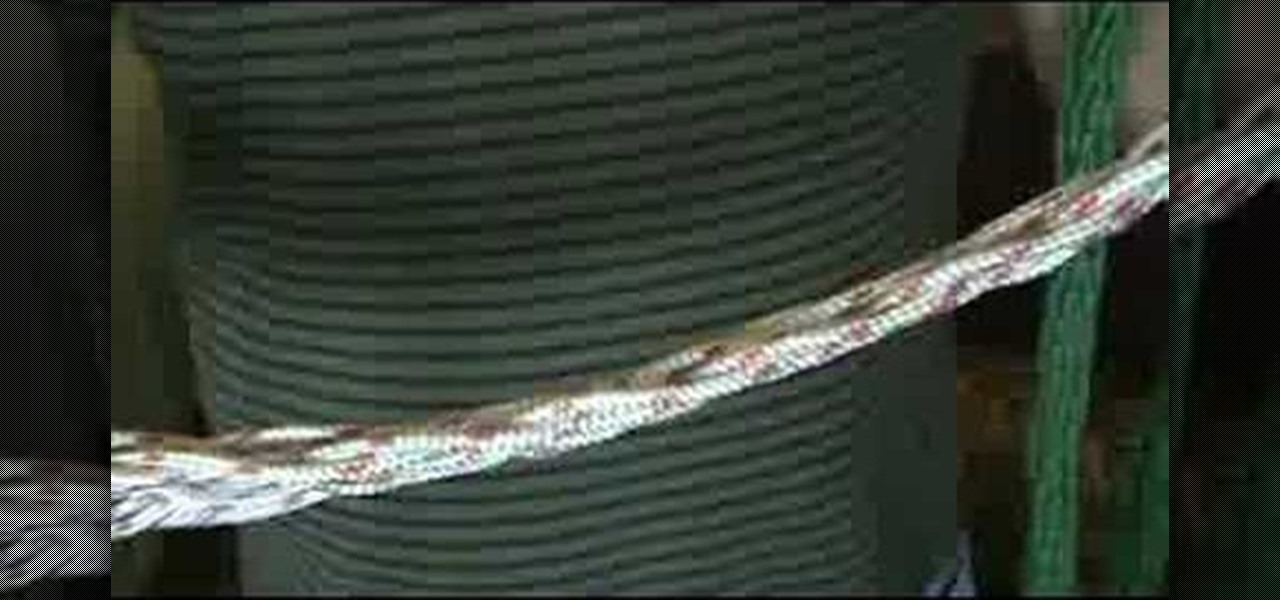
How To: Begin finger loop braiding
Watch this instructional video series to begin making several variations of finger loop braids. Finger loop braids are braids woven using loops of string on your fingers. Finger loop braiding reached a high point in Medieval Europe and England between 1200 and 1600 CE. Finger loop braids have a multitude of uses. They can fasten objects together, lace bodices, trim sleeves, close purses and hold wax seals to parchment. Modern uses include drawstrings for pants, hair ties, shoelaces, and frien...
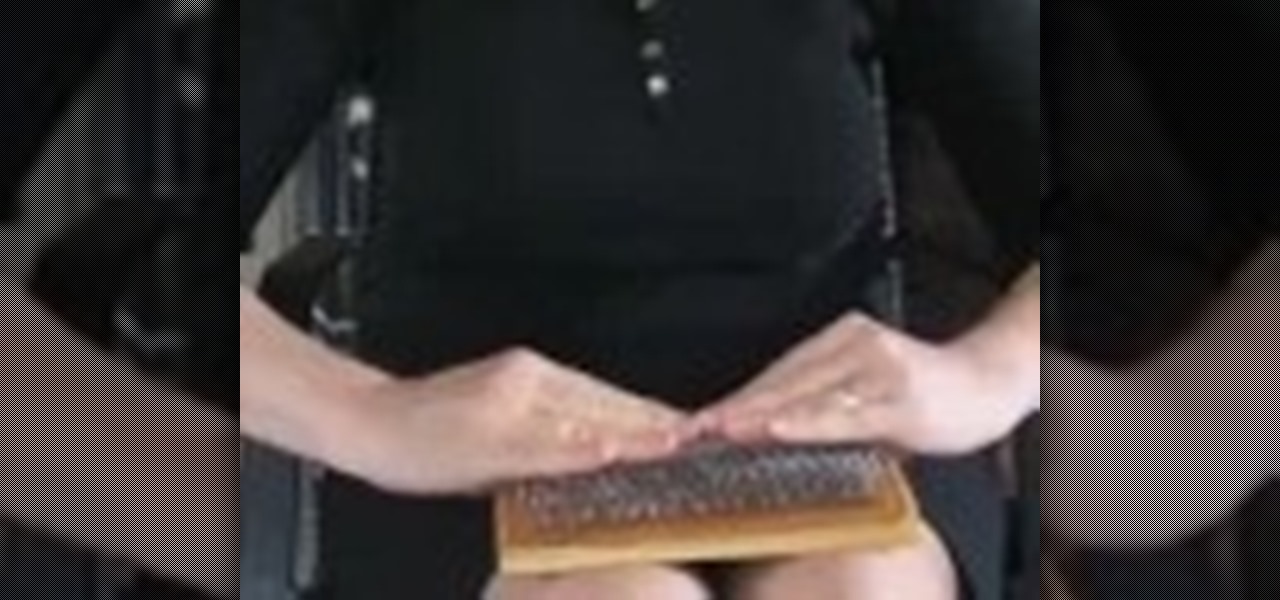
How To: Card wool for spinning by making rolags
Hand spinners who want to master long-draw drafting for woolen spinning need their fibers in a special form: carded rolags. Combed fiber won't do it -- neither will carded batts. This introduction shows you how to make carded rolags. Start by washing your fleece....
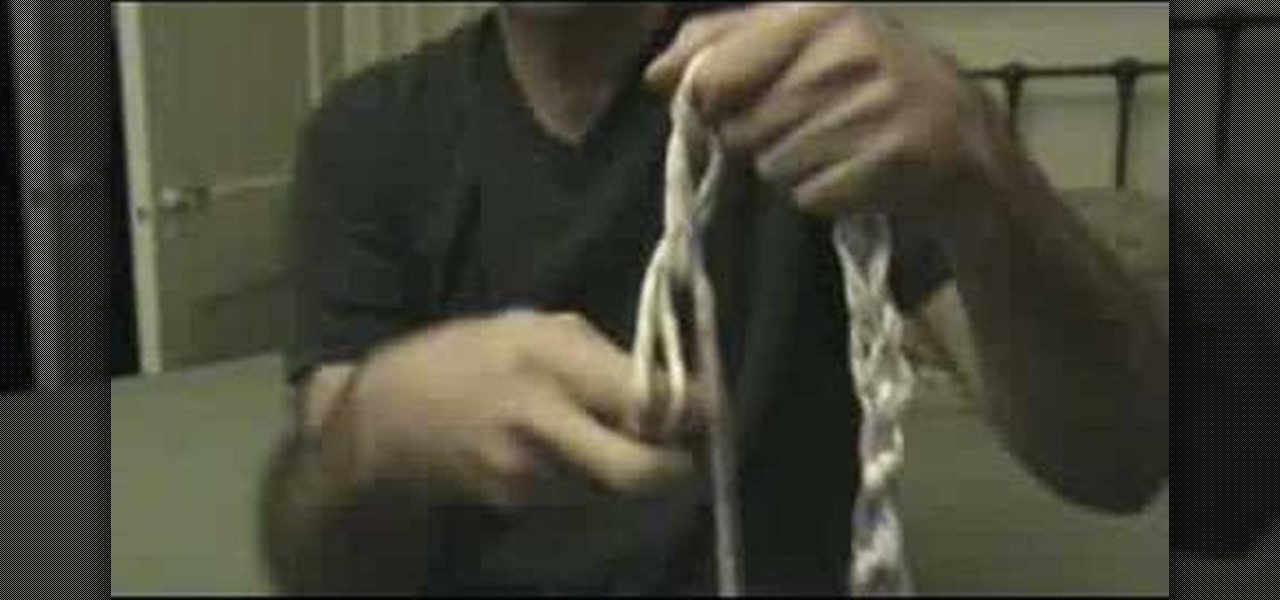
How To: Store rope to avoid tangles
This is how to store a rope so it will not tangle. If you have long lengths of rope to carry along on a boating trip or camping adventure, it helps to wrap the rope into an accessible yet compact series of loops. This rope will unwind easily for all your rope tying needs.
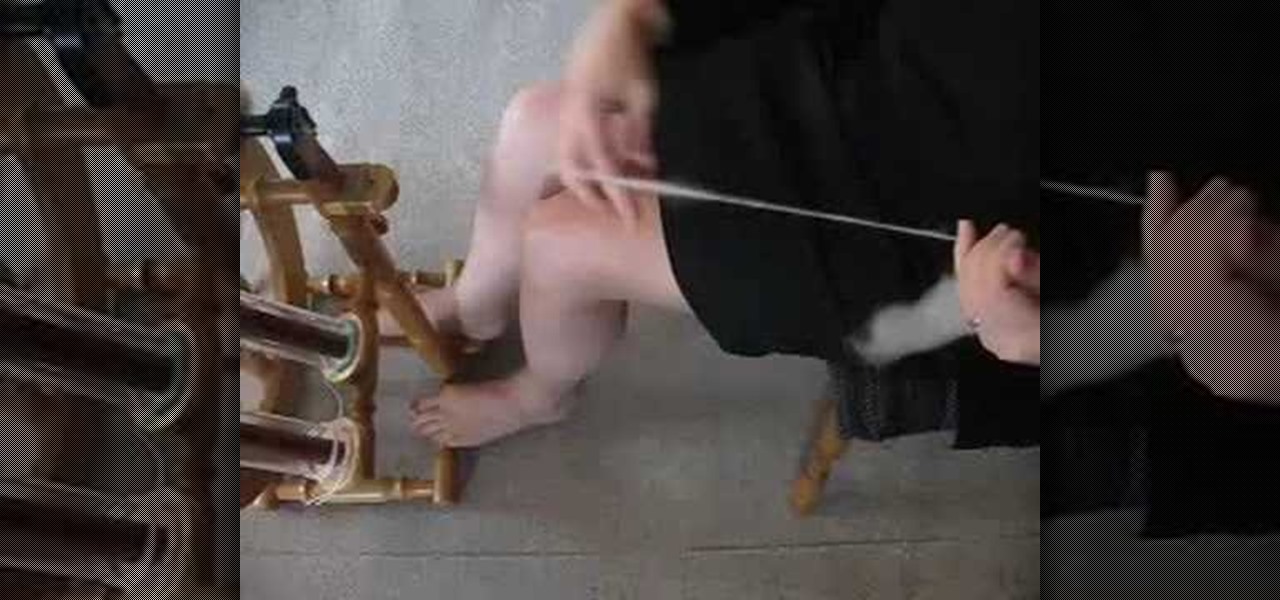
How To: Hand spin wool using the woolen long draw
Long ago, wool yarns were described as "worsted", or "woolen", or something in-between. A true "worsted" yarn is spun from combed fiber, which is dense and fairly smooth. A true "woolen" yarn, on the other hand, is open, airy, fuzzy, and warm. Its fibers comfortably tangle and spiral down the length of the yarn. The descriptive words not only apply to the yarns, but also to the techniques used to spin them. Worsted spinning is done with a short draw -- a short drafting movement. Woolen spinni...
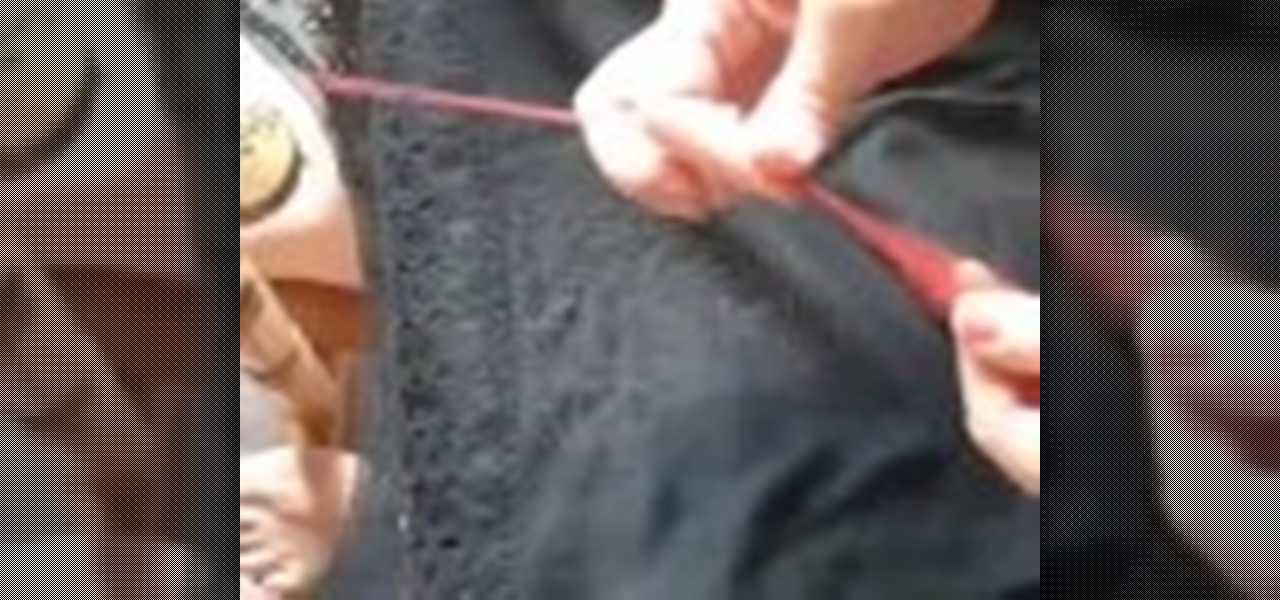
How To: Spin wool using the worsted-style short draw
This drafting technique has many names: worsted drafting, short-draw, and inchworm. It's simple and straightforward, as this video demonstrates. With high-quality combed wool, spinning wool this way makes a smooth, dense yarn.
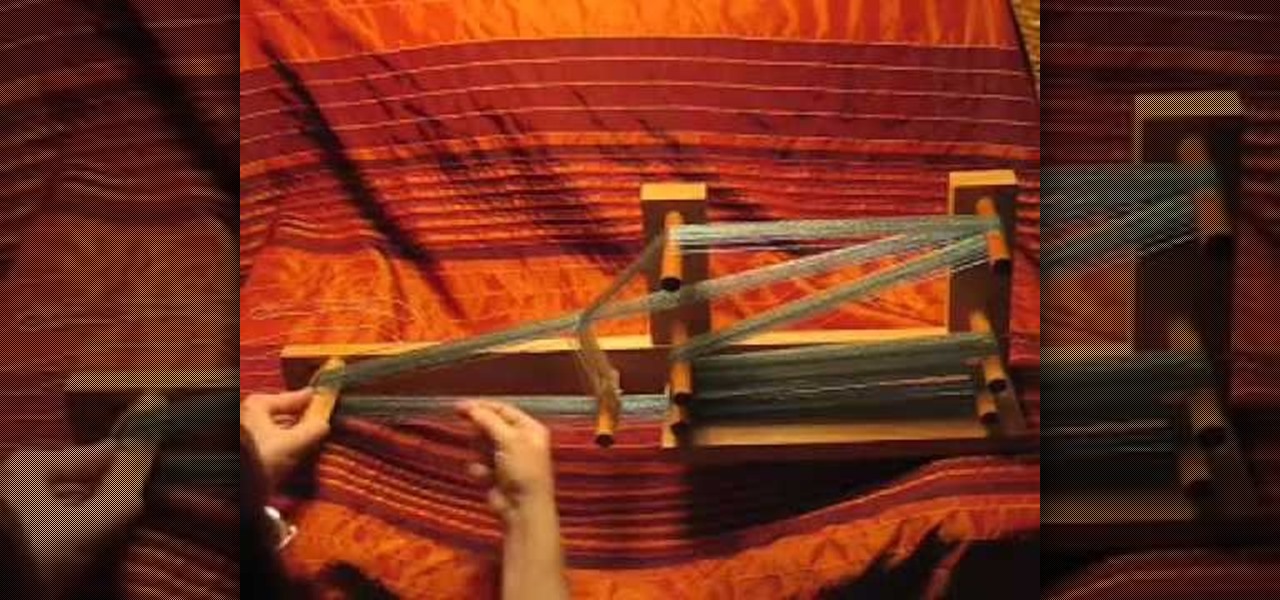
How To: Warp an Inkle loom
With all those pegs sticking out, inkle looms can look intimidating -- but in truth they're both easy to warp and easy to use. To get the loom ready for weaving, you alternate threadings: One thread goes through a heddle, the next one doesn't. The preparation is easy and the weaving that follows is all about how well you can use this tool.
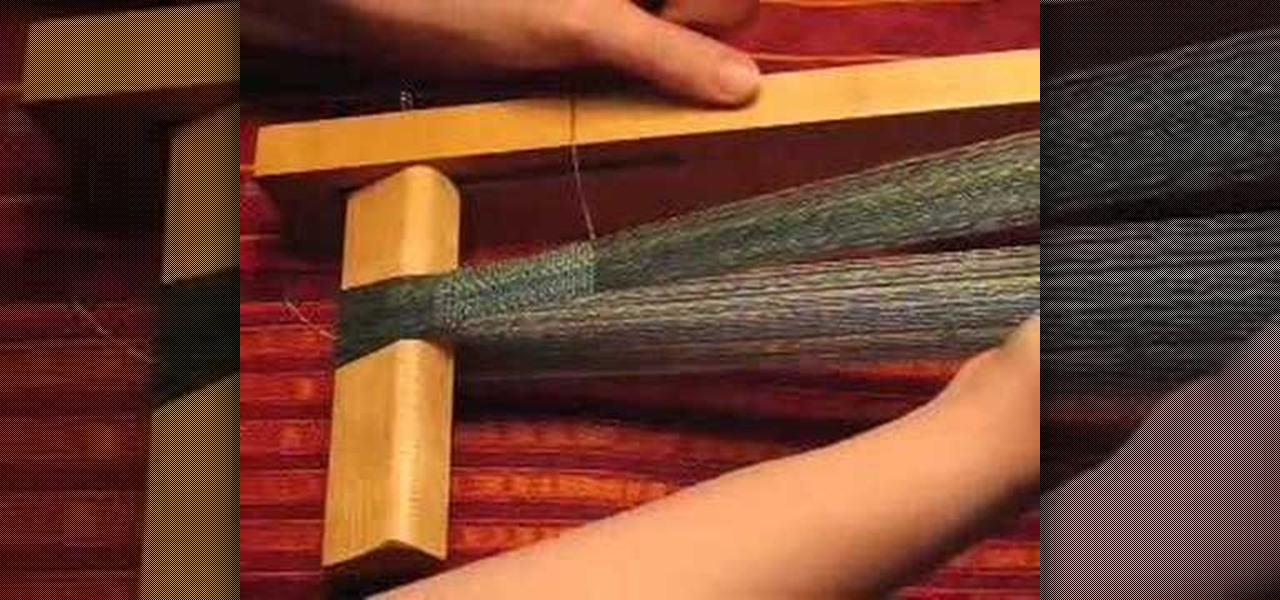
How To: Maintain straight edges for narrow weavings
So you're weaving a narrow band. How do you keep the edges nice and straight? Here's a technique that combines weft insertion, beat, and selvedge control. It's useful for inkle weaving, tabletweaving, rigid heddle weaving, backstrap weaving... or even weaving small bands on a big loom. Try it!
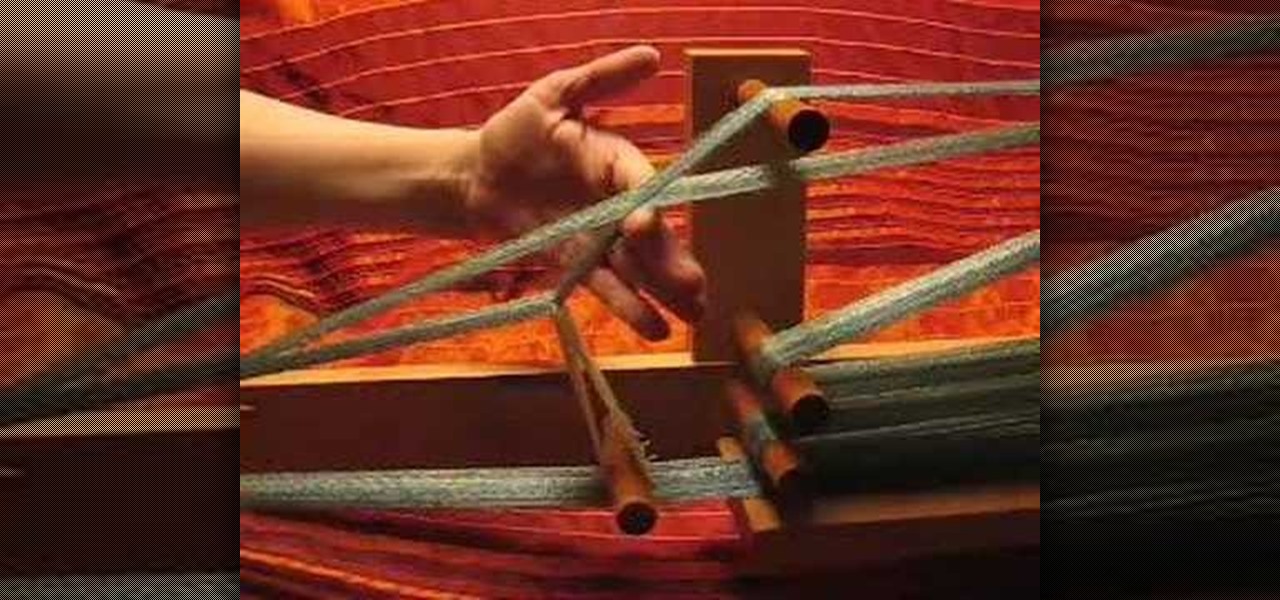
How To: Weave on an Inkle loom
This intro to inkle weaving focusses on the the inkle loom. The weaving area is one one end, in between the weaver and the heddles. For centuries, inkle weavers have used looms similar to this to produce narrow tapes, ribbons and bands. Inkle looms are thought to have their origins in Britain.
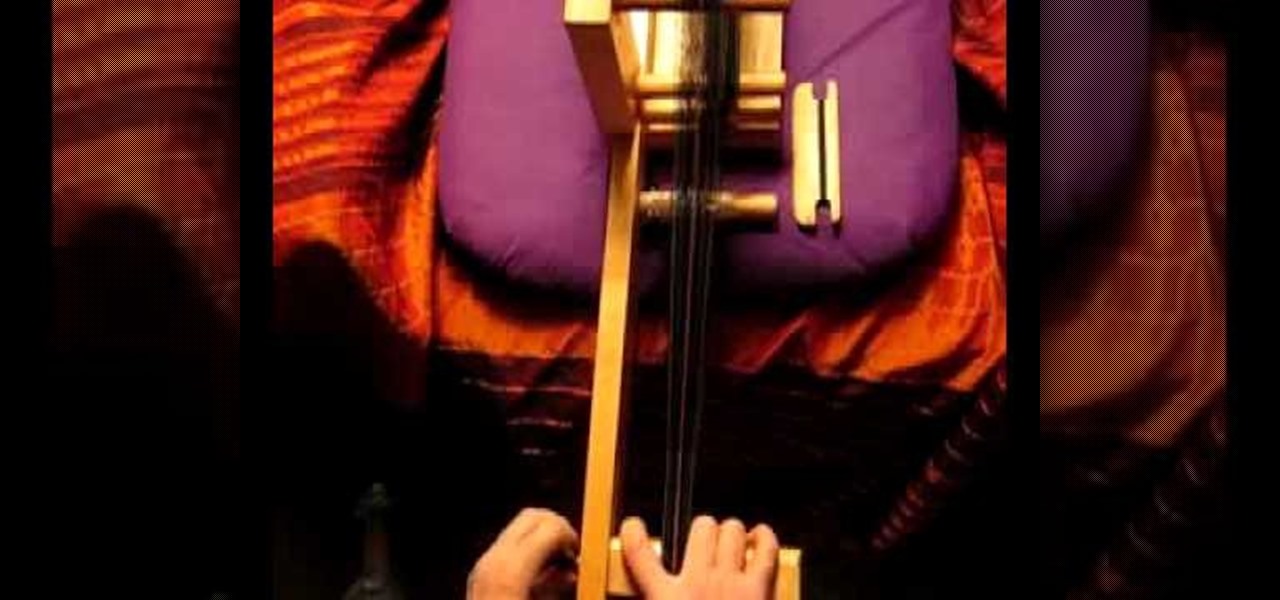
How To: Advance the warp for Inkle loom weaving
When the shuttle feels cramped as you pass the weft through your weaving, it's clearly time to advance the warp. This video shows the steps involved in advancing the warp on an inkle loom: loosen the tension, move the warp around the pegs, reposition the heddles. At the end, check the position of the warp threads on the pegs and re-tighten the warp.
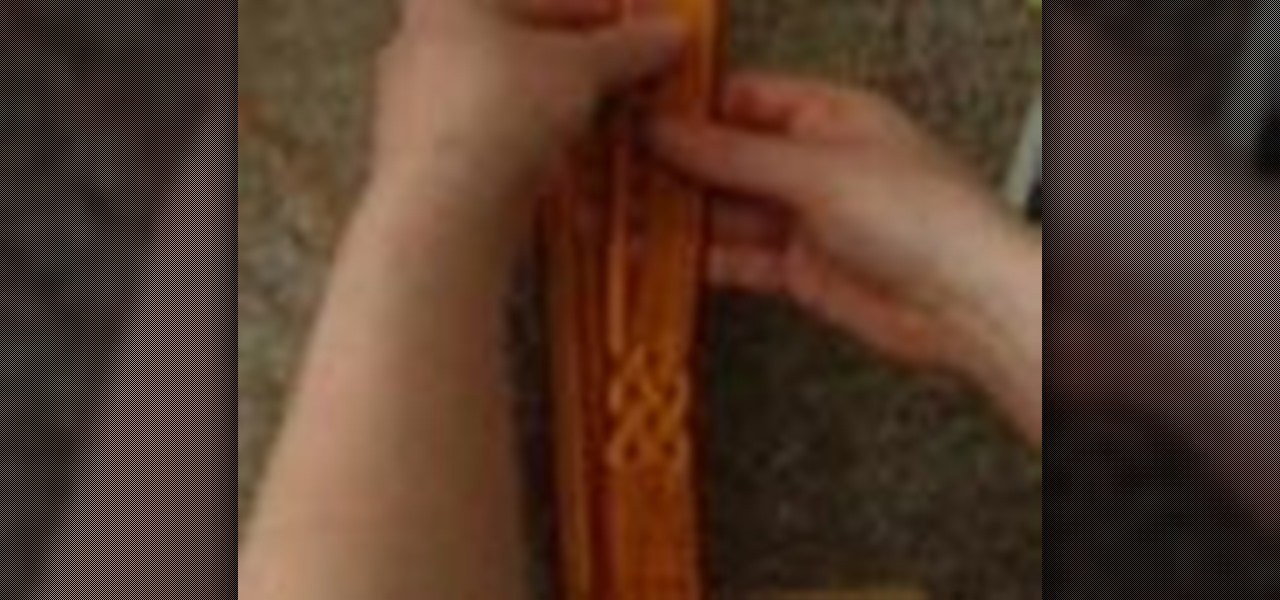
How To: Begin Inkle weaving
Watch this instructional weaving video to begin weaving on an inkle loom. Inkle weaving is a type of weaving where the weave is created by manually raising or lowering the warp yarns on a loom known as an inkle loom. Inkle weaving was brought to the United States in the 1930s. We know that the inkle loom predates the Shakespearian era, due to a reference to the inkle loom in Love's Labour's Lost. Inkle weaving is usually used for narrow work such as trims, straps and belts.
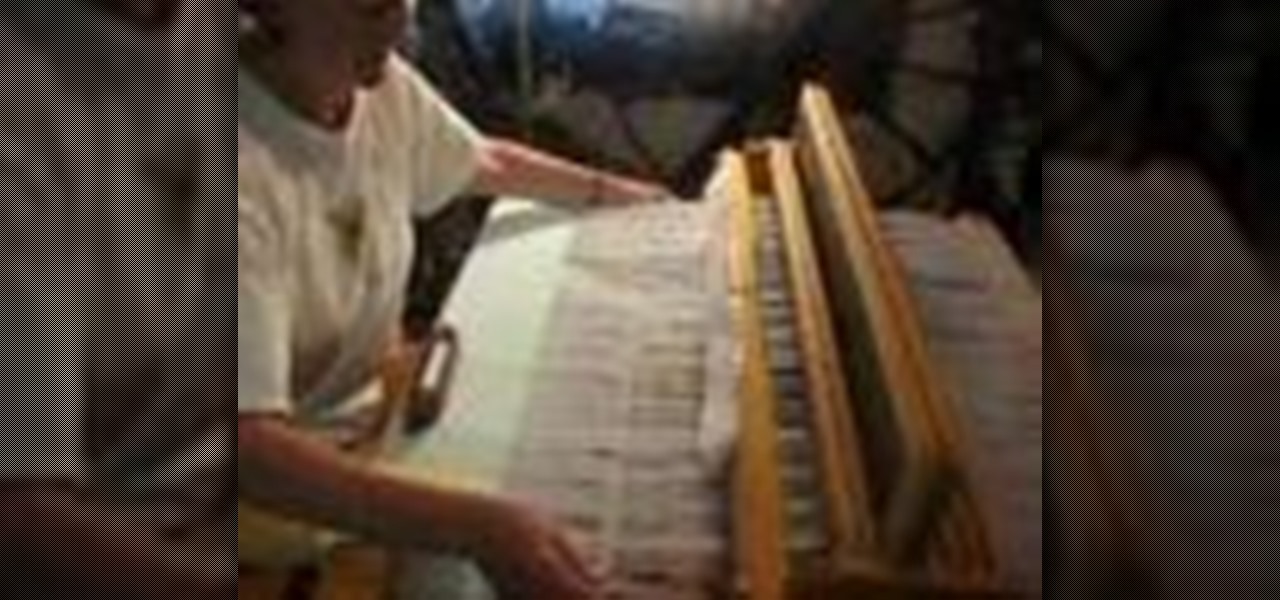
How To: Weave an overshot coverlet on an 8 harness Jack loom
Watch this weaving demonstrationi video to learn how to weave an overshot coverlet on a Jack loom. Beginning steps for weaving on the Jack Loom:
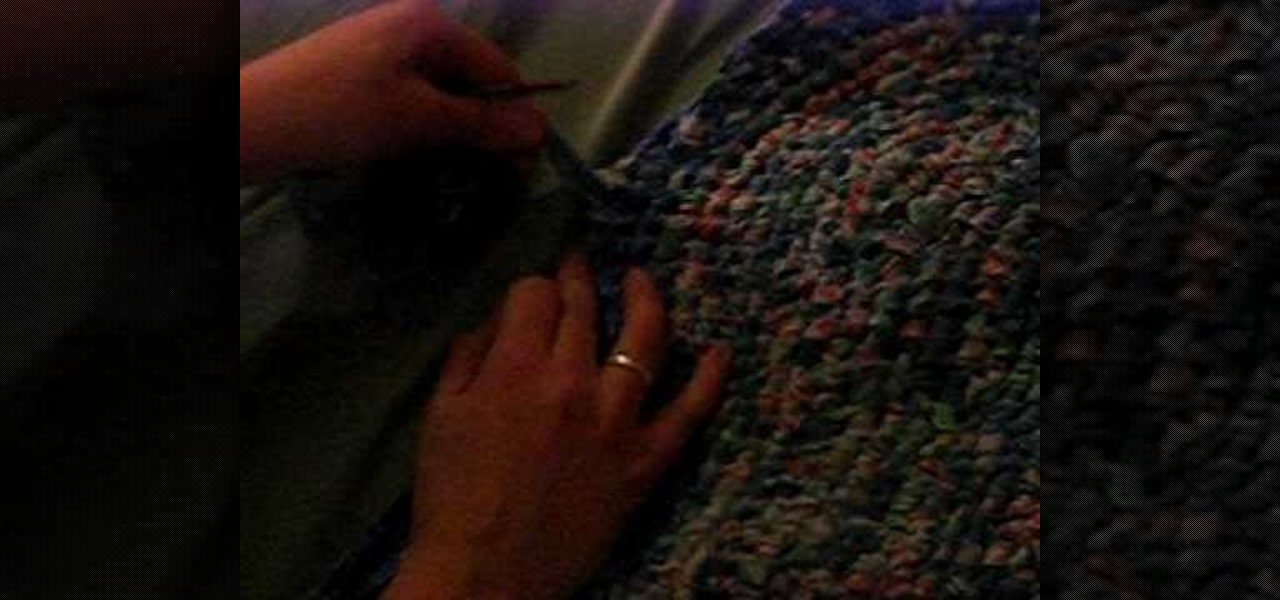
How To: Make a rag rug
Rag rugs were commonly made in households up to the middle of the 20th century by using odd scraps of fabric on a background of old sacking. Begin making rag rug with two ribbons tied in a knot. Attach a rug tool to the left strand. You can use a traditional latch hook, needle punch, or substitute tool. For the first row, repeat a simple process of tying knots. Don't tie them too tight, as you must thread the latch hook through each knot again to link the strings of knots. This video provides...
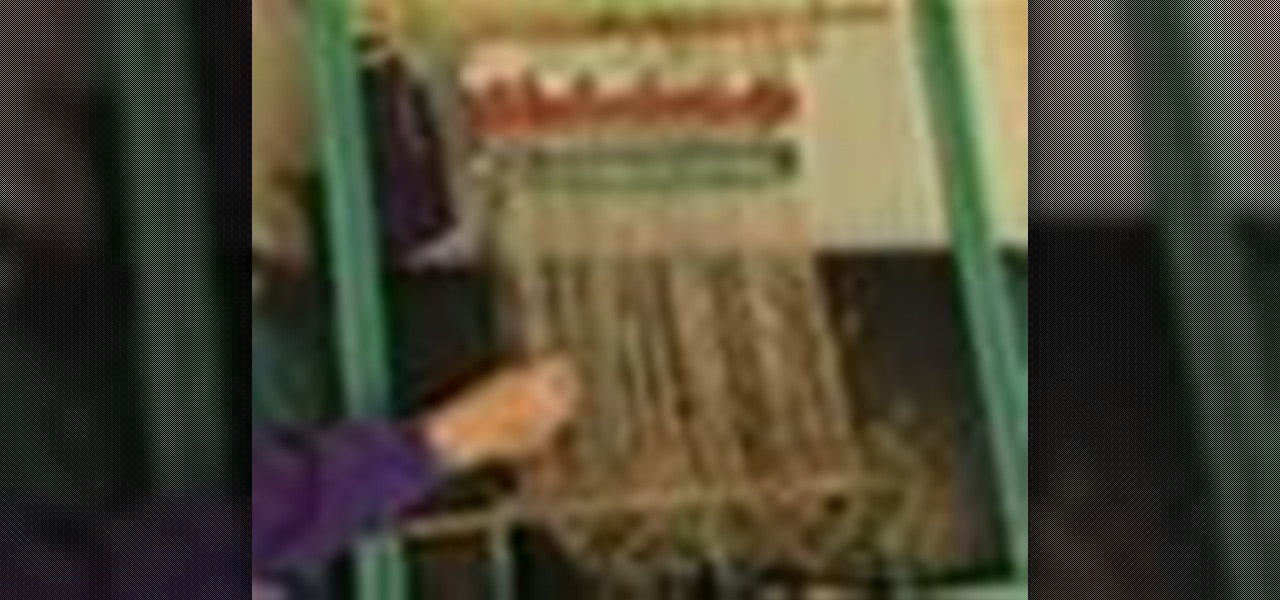
How To: Weave on a frame loom
Get crafty with frame looms, rug patterns, and weaving. Learn about rug weaving and how to weave with a frame loom in this free video.

How To: Make a palm cross for Palm Sunday
Let's face it: Church is one of the most boring activities a kid attends during the week, so try to make the drudgery at least bearable by getting your kids to do some hands-on religious crafts. This video teaches you how to weave a palm cross out of palm leaves. You must soak the leaves in water overnight, then tear them into 1/2 inch X 18 inch strips for easy, pliable weaving the next day.
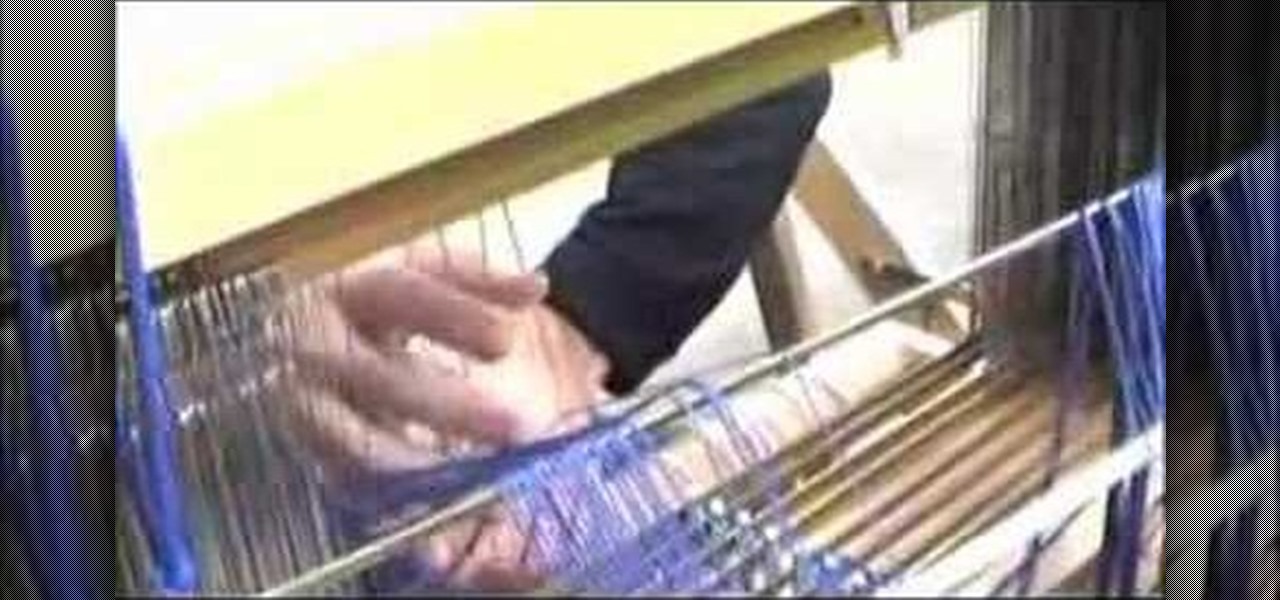
How To: Dress a floor loom
This is video footage of one step in the process of dressing a loom. This includes threading heddles and sleying reed. For a first-time weaver, setting up the loom can be 80% of the job. Many beginners actually enjoy dressing the loom more than weaving off the web. This comes about by careful work, techniques that have built-in double-checks, and efficient methodology.

How To: Assemble a kiss loom
Pay attention to this instructional video when assembling your kiss loom. A kiss loom is one of the only looms with an adjustable gauge. The gauge is set by changing how much yarn is used for each stitch. The kiss loom comes with a set number of plastic bolts, which are used to adjust the rake.
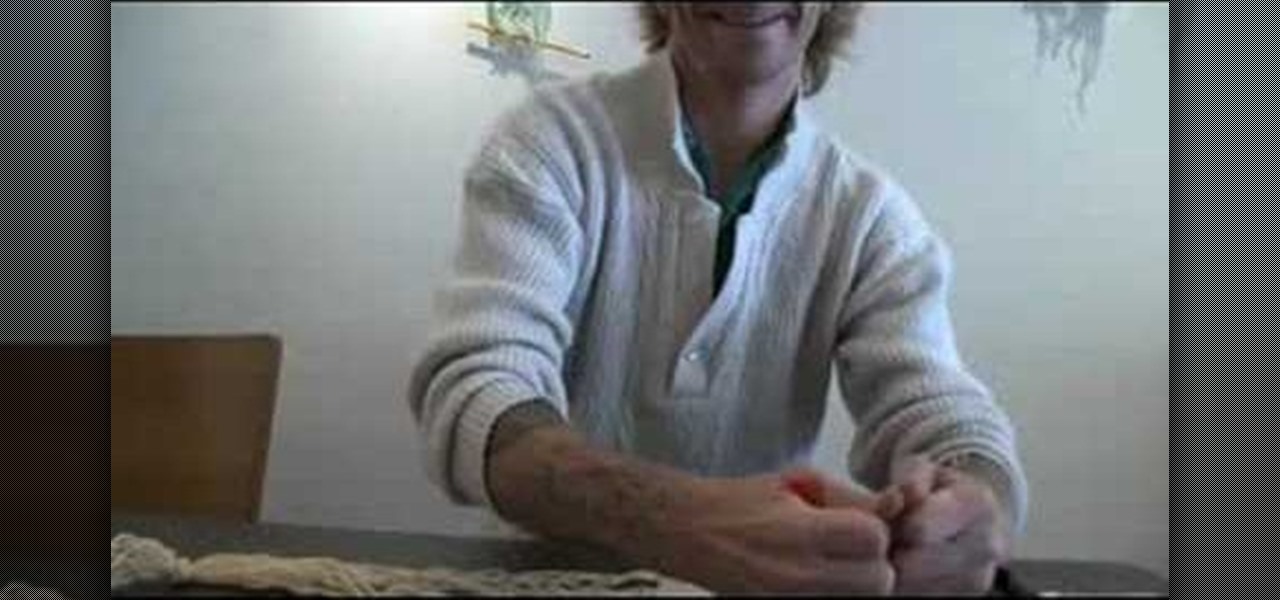
How To: Weave with paper index cards with Make Magazine
Learn how to weave with Travis Meinolf who's featured on the cover of CRAFT: 08, the Weaving issue. He explains how to make weaving loom out of 3 X 5" notecards, yarn and a pencil. After assembling the basic structure of the loom, create tension in the loom by attaching one end of the loom to the wall and the other end to one's waist. With a shuttle, it is possible to begin making creative woven fabrics in a matter of minutes.
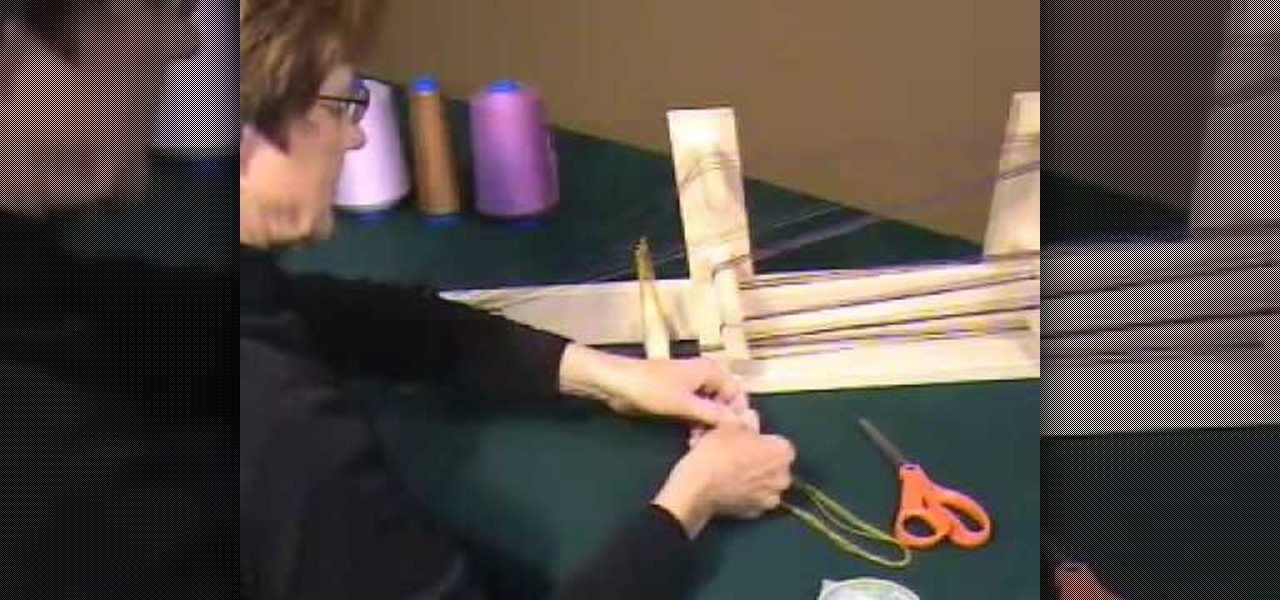
How To: Weave on the Schacht Inkle loom
Ever wanted to learn how to weave? The inkle loom is a simple and inexpensive loom for weaving bands, and is easy to learn how to use. Watch this video weaving tutorial and learn how to use a Schact Inkle loom and start weaving in no time. Learn about warps, wefts & threading. Wonderfully clear weaving tutorial for textile artists and designers.

How To: Start a toothbrush rug with half hitch knots
Starting a toothbrush rug can be the most difficult part of the entire weaving process. The technique demonstrated is a way to start weaving a toothbrush rug using a half hitch knot. Watch this video weaving tutorial and learn how to start a toothbrush rug using half hitch knots.

How To: Finish a solid color row when weaving a toothbrush rug
This video weaving tutorial shows how to finish a color band row or solid color row on a toothbrush rug. Demonstrated are the final stitches and tying off the end of the rug. Watch this instructional video and learn how to finish off a solid color row when weaving a toothbrush rug.
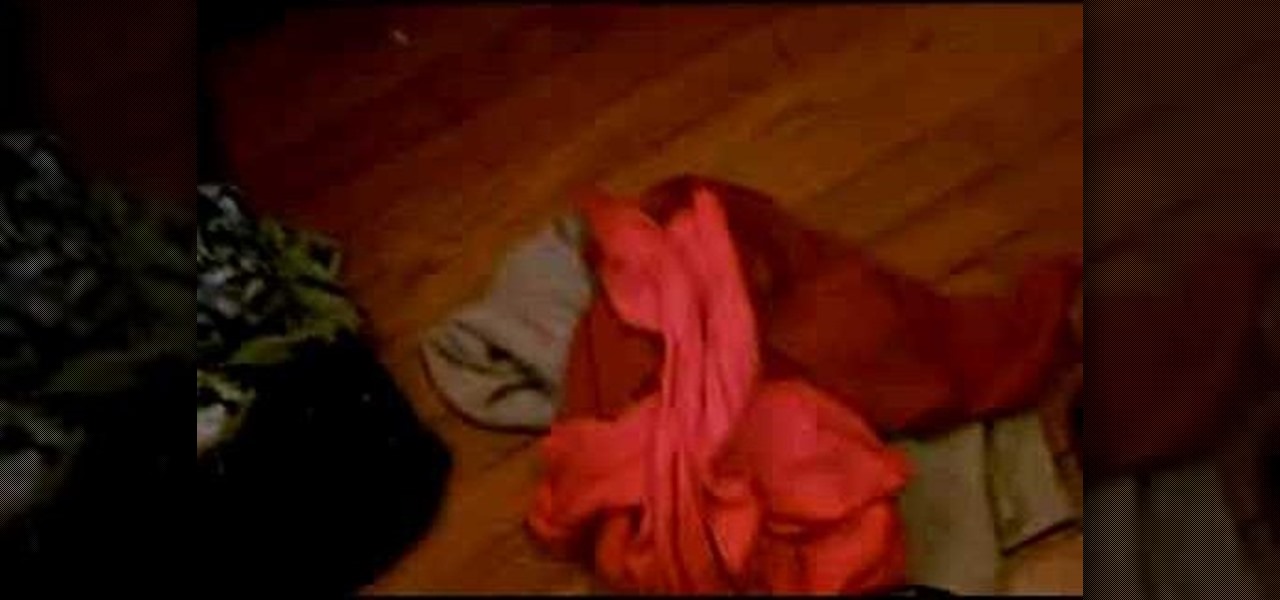
How To: Plan out and organize materials for a toothbrush rug
This video weaving tutorial describes the creative process by which materials are decided upon and how to sequence the fabrics together into the rug. Naalbinding or toothbrush rug making recycles wasted clothes, plastic bags, hosiery, and time into beautiful durable rugs. Watch this instructional video and learn how to plan out and organize the fabrics and materials for toothbrush rug weaving.
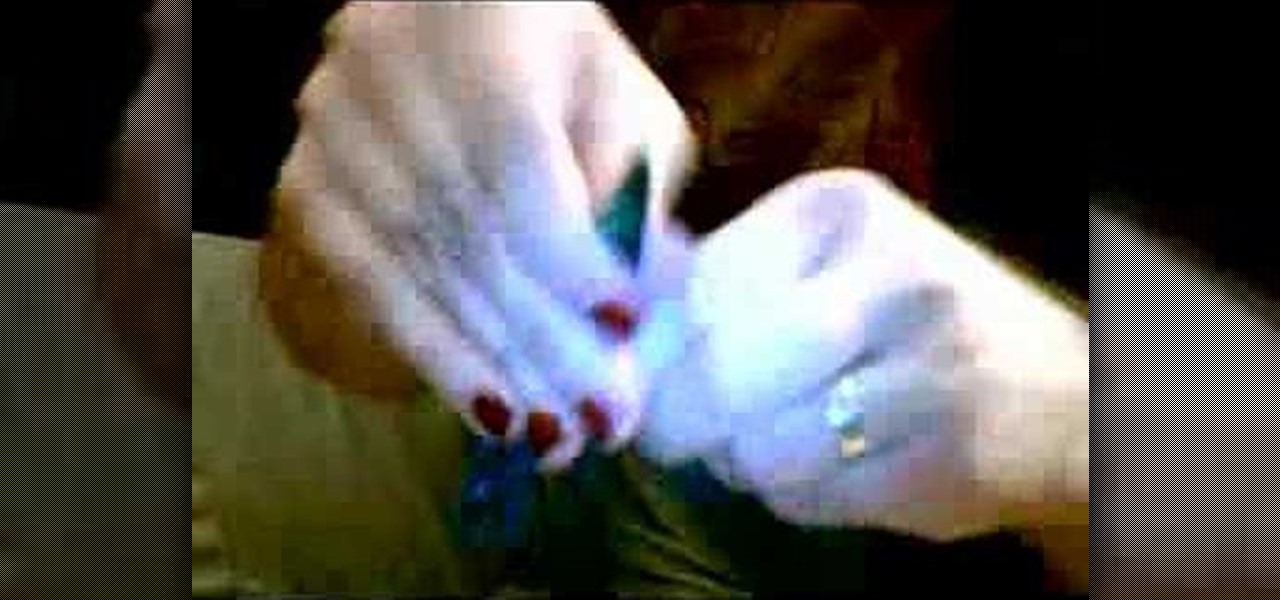
How To: Weave a toothbrush rug starting from a tight braid
Starting a rug is the hardest thing to do, and beginners are often better served to work on a start made by an experienced rug maker to become comfortable with the stitch. That being said, there's nothing that can't be learned with a little help and practice. Watch this video weaving tutorial and learn how to weave a toothbrush rug starting from a tight braid.
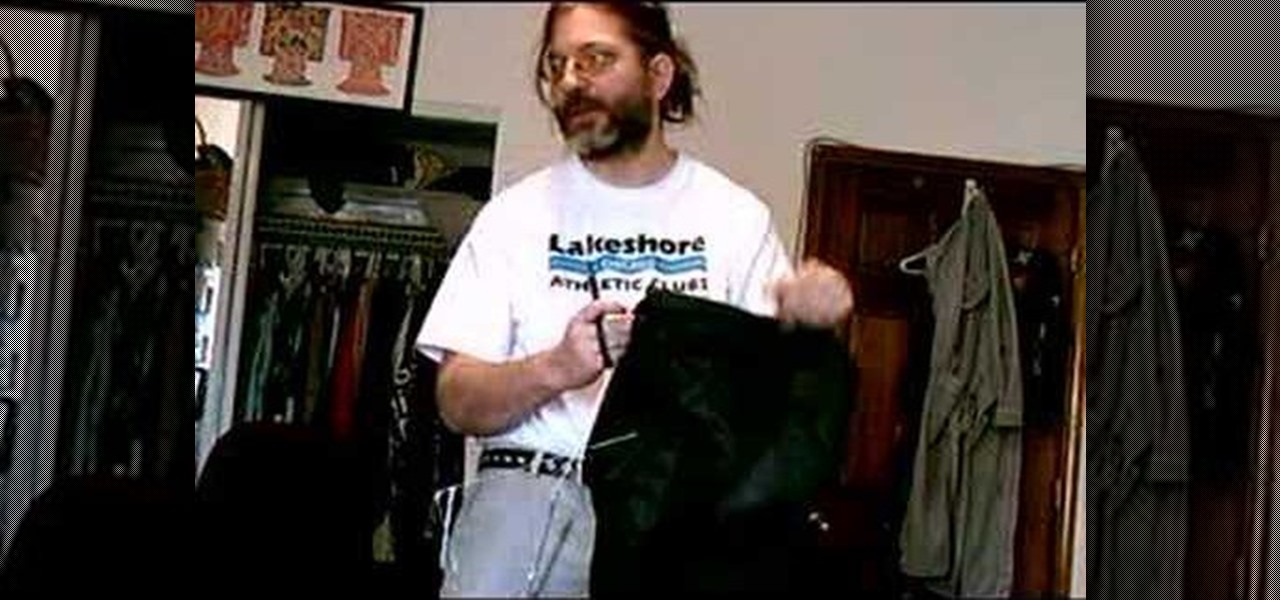
How To: Weave a toothbrush rug out of a destroyed umbrella
Listig the weaver likes to brag that the toothbrush rag rug weaving craft is the closest there is to making a silk purse from a sow's ear. In this video tutorial series, he takes two umbrellas and uses them to add on to a rug which was started from a discarded shower curtain. Watch these instructional videos and learn how to weave a toothbrush out of a destroyed umbrella.
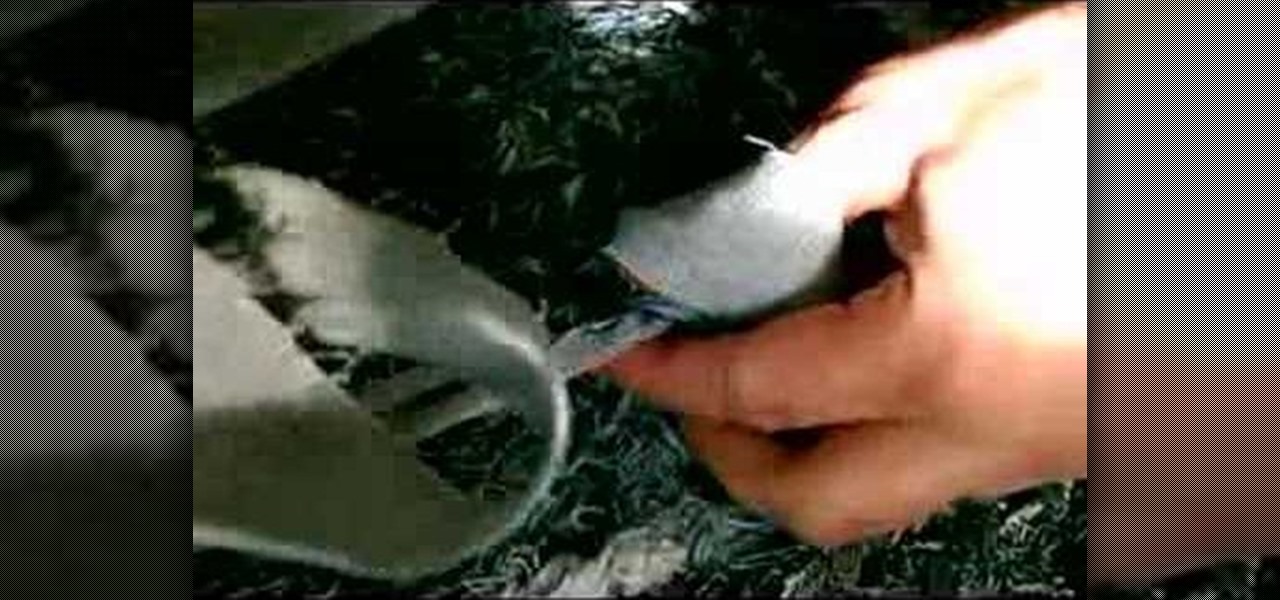
How To: Mend a rag rug with a strip of cloth
Though rag rugs are durable and are known to last decades, sometimes due to a weak fabric, a thin strip, loose stitching, or canine chewing, holes and weak spots develop. Fortunately, these holes are easy to fix. All you need is a strip of fabric in a similar color. Watch this video weaving tutorial and learn how to mend a rag rug with a strip of cloth.

How To: Make a split white oak basket
Westville, Georgia's woodwright shows how to make a whiteoak split basket from limb to basket. Follow along and learn how to weave a split white oak basket.
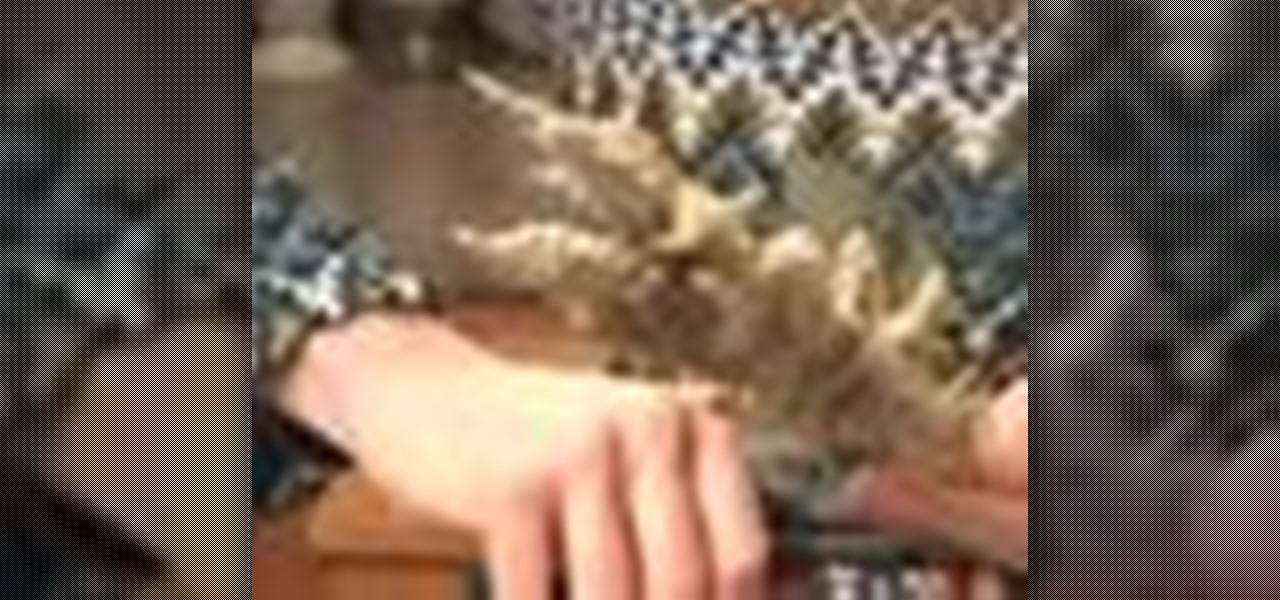
How To: Construct a homemade floral wreath
If you're the creative type, then this crafty floral wreath is the perfect project for you. Learn how to make a decorative floral wreath that you can style to match your home.

How To: Cover a bic round stick pen with polymer clay
This video shows how to cover a bic round stic pen with polymer clay. Why would you want to do that? Hey, you're the one looking at this video!

How To: Make a paracord lanyard key chain
Check out this video to see how to make a box style weave lanyard key chain from start to finish.
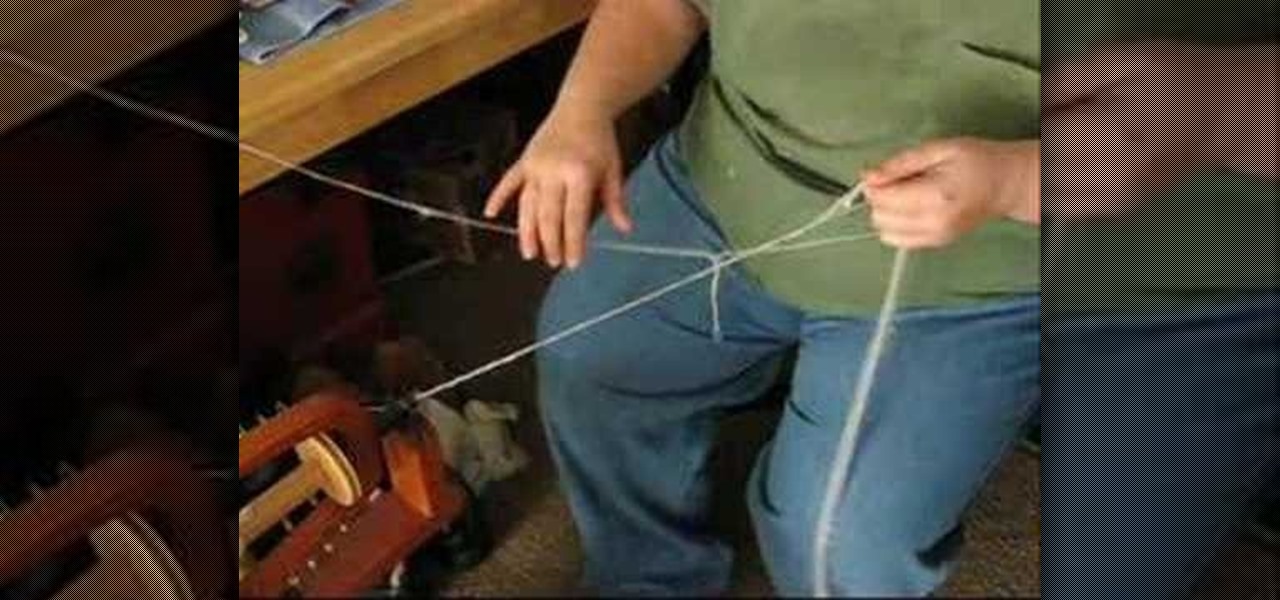
How To: Spin silk hankies
There aren't many vids out there about how to work with silk hankies and how to spin with them. I also found that you can easily roll the silk "roving" into a ball. I tend to do this when I need a lot of silk to ply with another single so that way it does not take as long to make the yarn. It's a great way to kill time at the relatives place!

How To: Weave on a two inch hand loom
Watch this video demonstration of how to weave from start to almost finish on a two inch hand held loom.

How To: String a weaving loom
How to string a weaving loom. This is a good beginner video to teach your child weaving skills.



